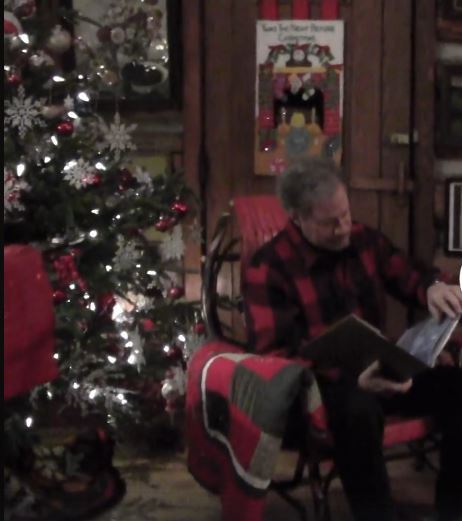SHORT ESSAY ON THE MEANINGS OF A LONG-AGO NIGHT

LAST YEAR ON CHRISTMAS EVE, AND THE YEAR BEFORE, I POSTED A SHORT ESSAY ON THE MEANINGS OF A LONG-AGO NIGHT. I’ve been asked to share it again…
Approximately 2020 years ago an infant was born (skeptics who doubt that he ever really existed advance a weak case, with more faith in skepticism itself than in evidence) likely in a cave-like space under a simple stone dwelling, to an unwed, teen-aged mother, delivered into poverty in a troubled, inconsequential corner of the world. About 33 years later he died, put to death by the powerful, the clergy and politicians of his day.
Some said the infant was holy, others said the man became holy through prayer and selflessness, through the overcoming of temptation, through exquisite empathy and concern for his fellow human beings.
Some have said he performed miracles and feats of magic. Others have said that the real magic, the greatest and truest miracle, was the inexplicable way he touched and elevated the souls of all with whom he came in contact—as if their eyes and ears and hearts were opened. Even the mere telling of his story, long after his death, has this effect.
Although that story is widely known, it is almost certain that the man at the heart of it has been grossly misunderstood by billions over the centuries who have quoted his name. That name was Yeshu, or Yeshua—known to most today as Jesus.
People have killed in his name. People have fought wars in his name. People have bought and sold uncounted trillions of dollars worth of merchandise in his name. People have bought and sold slaves, and defended the practice, in his name. People have burned crosses in his name. People have been burned at the stake in his name. Genocide has been conducted in his name. People have destroyed Creation in his name. People have hated in his name. And they still do.
People have also taken vows of poverty in his name. People have devoted their lives to the sick and the weak and the poor in his name. People have fought against slavery and exploitation and every form of injustice in his name. People have become brave and merciful and generous, to the point of giving their own lives, in his name. People have found hope and meaning, beauty, love, and salvation, in his name; have fought for the beauty of Creation in his name. And they still do.
What seems clear from these stupendous contradictions is that the mere claiming and reciting of the story and the name leads to no preordained values or attitudes, acts of goodness or compassion. Rather it is those open eyes, ears, and hearts that are key in trying to truly understand the story and its meaning. It is the story of a person whose very essence came to be understood as goodness, as truth, as courage and mercy and compassion—to the extent that those who saw him and came to know him had the feeling that they were witnessing the very nature of God Himself. They were seeing—and believing—that there was a goodness at the heart of the universe, a light in the heart of darkness, that could ultimately triumph over evil, over suffering, even over death.
The need for those open eyes and hearts was often referenced in the Teacher’s own stories. Stories like the Good Samaritan, the Adulteress, the Mote in the Eye, each illustrated that every listener must first and always look inward and take into account his or her own mind and heart, weaknesses and flaws. For only in doing so can we determine whether our actions, words and lives are truly reflective of the revered name so often invoked—or, as is all too often the case, simply demonstrate our own selfishness and pettiness, our all-too-comfortable customs, fears, and prejudices. This is and always has been the case. And it is a difficult thing—to attain such an honest, inward view. But that is the space that the Teacher, this Holy One whose birth we celebrate, always claimed and said He inhabited—the space of the innermost heart and soul, the “Kingdom of Heaven within.” He exhibited an extraordinary expansiveness, liberality and empathy that was unimaginable and revolutionary in his day. As in this day.
And so we retell the old story, and try to imagine a time and a world so very different from our own–yet the same. The very same. Christmas is and has always been a time to reflect—upon our inner worlds, and the greater world we share—now bound together more tightly and seamlessly than ever. It is a world–as the Teacher taught–in which there is no “them.” There is only “us.” It seems that the deep, dark dead of winter, as in every winter for 2020 years, is a good time to examine that “kingdom within” in each of us; to ponder the mystery of a humble birth and a single life lived long ago, and of the one great life we all share. It is a good time to ask if we–and those who claim to be ’leaders’ in his name—are truly honoring the old, familiar story, and the extraordinary person at the heart of it.
Merry Christmas, everybody. May it be filled with love and light and blessings.